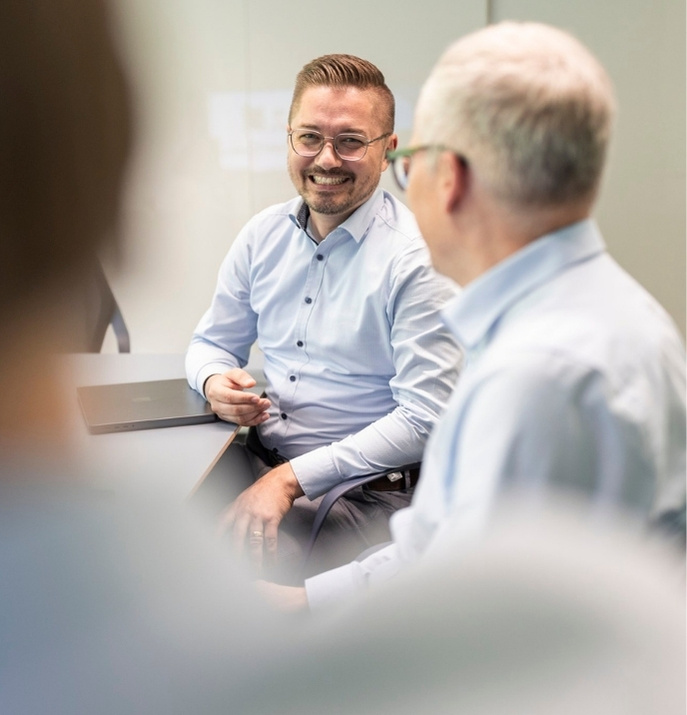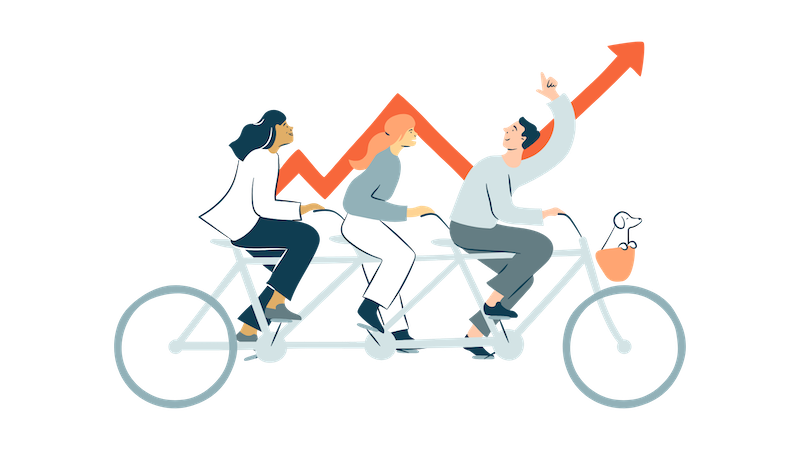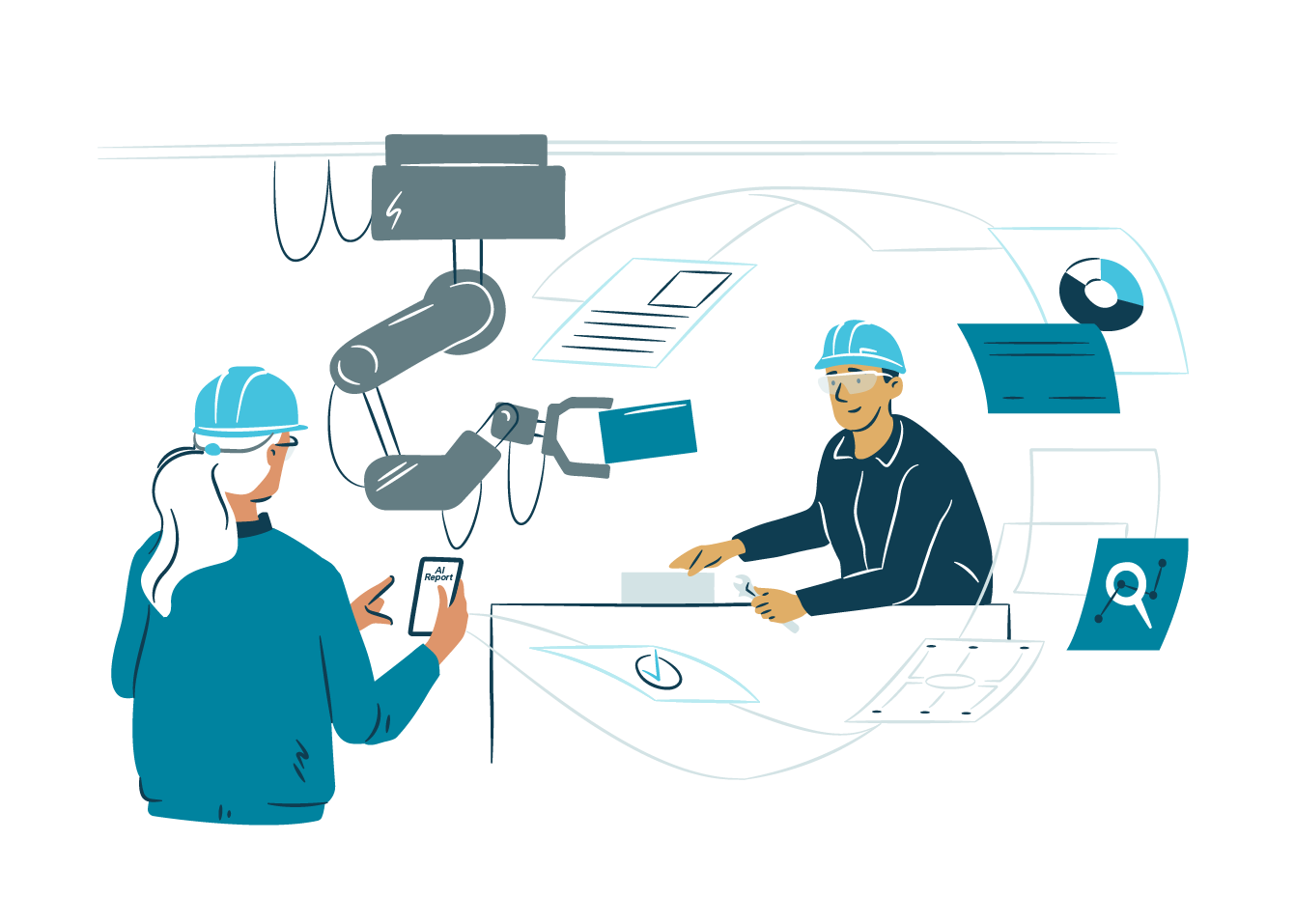The journey towards holistic management of phenomena, ecosystems and wellbeing has already begun. We have the tools, so now all we need is the courage to use them.
I already knew in the late 1990s when studying software production that artificial intelligence was going to change the world. Now, based on a Ph.D. in neural networks, 10 years of leadership experience, and recent developments, I can use AI to point the way towards beneficial growth for society.
While developing Gofore’s data-driven and AI business activities, I have a mission to discover how AI can help create a better world.
I believe that change begins with leadership. Yesterday’s strategies, metrics, and tools can only keep us where we are now. The problems with management lie in organisational and service-production structures, and the current management mindset. Traditional knowledge management tools, such as BI or data resources, will not necessarily lead to a change of approach: the data collected with them tends to reinforce old structures.
If it didn’t, we would be living in a somewhat different society.
Artificial intelligence is shaking up leadership
We’ve come a long way since neural networks were the playthings of scientists only. It may still be early days, but AI has already transformed management. The actual transformation began in 2015, as I was joining Gofore.
This was the beginning of a unique journey combining management, data and AI. We have noted that the availability of sufficient facts has a transformative effect on management. We can provide such facts by using AI and machine learning to create insights — based on existing data — which reveal anomalies in our current activities.
For example, I find it somewhat absurd that the work of medical doctors is still measured based on patient volumes. This ignores the actual value created by the doctor, i.e. the improvement in the patient’s wellbeing and health.
Despite drowning in data, we remain unable to manage the growth of wellbeing or its impacts!

Towards managing wellbeing and impacts
Fortunately, tools are available for this. It’s all about having the courage and willingness to use them while recalibrating management to shape the wellbeing of customers.
This is promoted by using data and AI to generate an overall picture of the customer’s situation.
For example, take work done on behalf of child welfare services in Espoo. Data analysis identified 280 variables that can be used to predict which young people are likely to become clients of child welfare services. Several dozen independent factors must probably be in place for the risks facing an individual to be realised. No one working with families can understand the combined effect of such an array of factors, and provide the right services at the right time. But hundreds of such factors are small fry for an algorithm.
This is state-of-the-art, as well as being a big deal! Service management can be unified by combining data, anonymously, from a range of fields. The same applies to the industry. A single institution’s data resources are rarely sufficient for understanding the customer’s big picture, but open data can already be used for this.
What comes next?
Looking even further ahead (which the researcher in me particularly loves to do), we see the age of data-driven platform ecosystems. In this era, management will become the management of ecosystems and wellbeing. The consumer will no longer have to be a ‘system integrator’, sifting through services by dozens of providers.
This too is being developed, for example via a service for solving the labor market mismatch problem. A CV is uploaded into a single system, where it is connected to a platform ecosystem and machine learning links it to all current vacancies. The path can be measured all the way up to employment. This is genuine match-making in working life (in Finnish): Tekoälyn hyödyntäminen ESCO-osaamisten haussa, Hyvä tekoäly – algoritmi, joka on suunniteltu auttamaan!
The Aurora AI project involves a similar issue. It envisions a system that provides people with services that fit their life situation, regardless of the party that is providing them. For example, a person moving to a new town will be offered topical services, from bus tickets to electricity contracts.
I am hugely inspired by the prospect of Finland being a forerunner in this. We have the necessary technical expertise, and the authorities have access to high-quality data. In addition, trust exists between citizens and the authorities. We have all the ingredients we need, we just need the courage to prepare it into something good.
I think Gofore is one of the few organisations in which my ideas resonate. It’s full of people like me, seeking opportunities to produce something which takes meaningfulness and impact to the next level — wellbeing!



